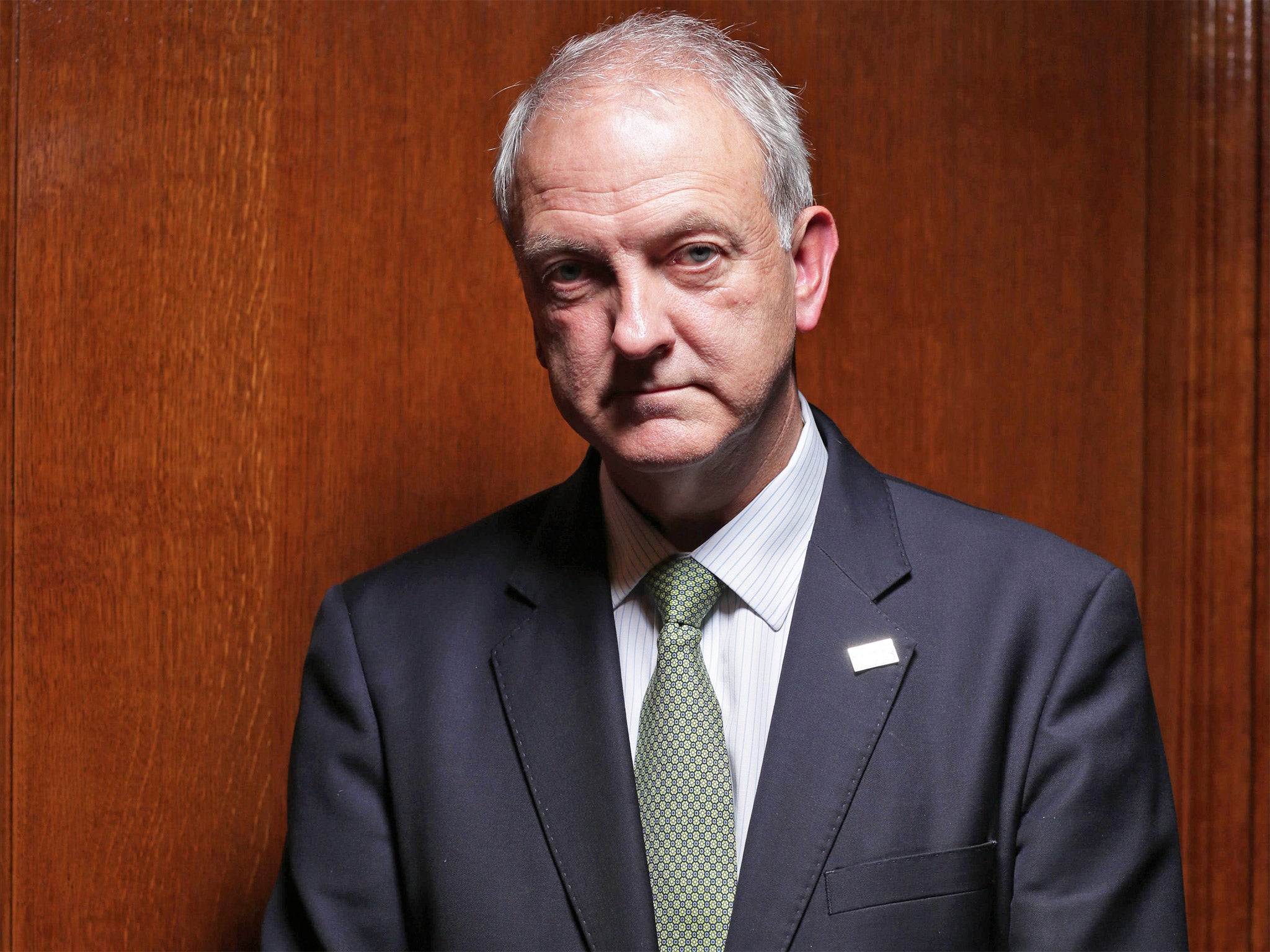Free NHS vital in era of genetic medicine, says England’s top doctor
People born with risk to particular conditions would face prohibitive premiums in insurance-based scheme

A taxpayer-funded free-at-the-point-of-use NHS will be “more important than ever” in the future as genetic medicine transforms our understanding of people’s disease risk, England’s top doctor has said.
In an interview with The Independent, Sir Bruce Keogh, medical director of NHS England, said that the “advent of genetics” would mean that doctors will soon know in great detail which individuals, from birth, are at risk from conditions such as cancer, diabetes and heart disease.
Under an insurance-based, privately funded health system, this knowledge would mean individuals with a genetic predisposition would be doomed by their genes into having to pay high insurance premiums, he warned. “At a time when we are going to hear a lot of debate about is our NHS is fit for purpose? Has it passed its sell-by date? My answer is, no,” Sir Bruce said. “Our NHS is founded on the principle that everybody shares everybody else’s risk for health. With the advent of genetics, we will have an understanding of who is at risk from what disease. We are in the foothills of this at the moment, but imagine a scenario where it would be possible to predict that an individual is at high risk of colon cancer, high risk of diabetes and therefore high risk of a heart attack as well – and that another individual wasn’t. Imagine the implications of that in an insurance-based, privately funded healthcare system.”
In numbers: the NHS crisis
Show all 7As The Independent’s week-long investigation into the parlous state of the health service’s finances continues, Sir Bruce warned against allowing “the economics [to] drive us into a debate that leads people to question whether our NHS is fit for the future or not”.
He said: “The concept of a healthcare system based on pooled sharing of risk is now more important than ever,” he said. “We must preserve that at all costs because the emerging science will dictate that our NHS is more fit for the future than almost any other healthcare system in the world.”
His intervention is a strong indication that clinicians at the top of NHS England consider the basic principles of a free NHS to be non-negotiable, as the health service faces up to a £30bn funding gap over the next five years.
Sir Bruce also set out a vision for how the NHS could use technology to become more efficient and more accessible in the future, predicting far greater use of online consultations and wearable health monitors within 15 years.
“Care will not just be closer to home in many cases. In many cases it will be brought directly into the home through scheduled online video communication with doctors, nurses and others,” he said, admitting that the NHS had been slow to exploit the opportunities offered by the internet.
“Wearable technology” would also become an integral part of a future NHS, he said. “People with conditions such as heart failure or liver disease or asthma will wear devices or clothes capable of detecting deterioration.”
Subscribe to Independent Premium to bookmark this article
Want to bookmark your favourite articles and stories to read or reference later? Start your Independent Premium subscription today.

Join our commenting forum
Join thought-provoking conversations, follow other Independent readers and see their replies